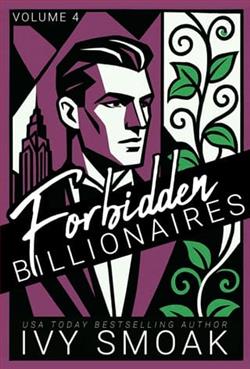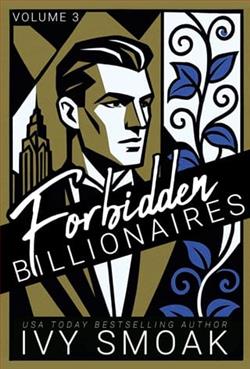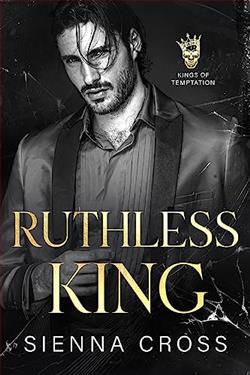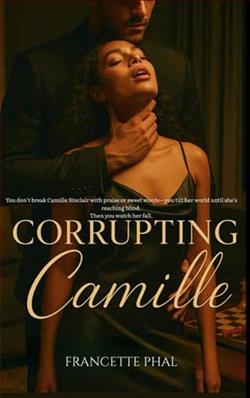Page 39 of The Venice Murders
‘She’s desperate, Jack. From what Alan’s just told you, she was so frantic for promotion that she was willing to start a physical fight. Is she still using violence, do you think, to gain her ends?’
Jack frowned. ‘What you’re suggesting is that she could have killed Franco. It’s not likely, though, is it? She’d be killing her golden egg. Franco was her future.’
‘Except that the girl evidently has a temper. She lost it at the Old Ship. Perhaps she lost it again when she saw her future slipping away.’
‘Her father has a temper, too,’ Jack reminded her. ‘And he has a far stronger motive for murder than a lost job. He’s furious that his daughter has been rejected by a man he trusted and furious that, in the process, he’s lost a great deal of money.’
‘Has he lost it? Somehow, he found the funds to buy a beautiful new boat – whatever deposit the couple paid on the Mestre flat must have been returned when they cancelled the purchase.’
‘He can still be angry – it’s been a messy business – and we shouldn’t write him out of the plot just yet. And what about all our other characters? Have you forgotten the dubious restaurant and its dirty deeds?’
Flora walked over to the squashy sofa and flopped, stretching herself full-length on the pile of soft cushions. ‘I haven’t forgotten the restaurant. I wish I could,’ she said, yawning. The sun streaming through the balcony windows knitted her in a blanket of warmth. ‘But I think I may forget the garden this morning.’ She yawned again. ‘I’m so comfortable here, it’s making me dozy.’
Too dozy to set her brain in motion when she needed to think. Lodged deep inside her was a conviction – one Flora couldn’t satisfactorily explain – that Asolo was still the key that would unlock the mystery: to the theft, to the kidnapping, even to the murder. Yet neither Bianca nor her father appeared to have any kind of connection to the place. There must be one, she thought drowsily, her eyelids closing against her will. Maybe this evening…
The Santa Maria della Pietà or Vivaldi church was situated on the Riva degli Schiavoni, a short walk from the quayside where the hotel launch had its berth and an even shorter walk from the Doge’s Palace. On the Bridge of Sighs, from where prisoners once took their last glimpse of Venice before incarceration in the doge’s prison cells, they stood for a while, watching a succession of gondoliers as they passed below. The rowers’ toes, Flora noticed, faced outwards ballet style as, with skill, they directed their lopsided craft beneath the bridge and into the network of small canals that furnished the route for each new band of tourists.
From here, they could see the white-pillared church they were making for and already a smattering of people were being greeted by the priest standing at its door. The concert, with its regular performance ofThe Four Seasonsviolin concertos, was one of the most popular the church hosted, and Jack had been lucky to obtain tickets for them at fairly short notice.
He reached out for her hand, giving it a small tug. ‘This is a wonderful view but we’d better make tracks. The church is already filling up.’
It was another beautiful summer evening, the air soft and warm and, as Flora stepped through the front entrance into the lobby, she was surprised to find the church almost as mellow – she’d expected the temperature to plunge in the usual ecclesiastical chill, and had brought with her the thickest cardigan she could find. Without fans and in the heat of very high summer, this interior could be stifling, she imagined.
Once in the church proper, Flora paused to look around. An abundance of paintings was her first impression, every wall filled, while above them the ceiling flamed with a tumultuous vision of storm clouds, trumpeting angels and tumblingputtisinging for all their worth.
Jack, tickets in hand, beckoned her towards a pew three or four rows back from the low stage and, once seated, she could see better how cleverly the church had been built. The oratorio was oval-shaped and the atrium surrounding it had clearly been designed to dispel noise from the quays and the harbour outside. The church was like a white egg, she thought, smiling at the simile. A fresh, white egg, with flashes of red from curtains and kneelers providing a contrast.
But it was the balconies and choir stalls, elegant in wrought iron, that took most of her attention. It was from the choir stalls, she’d read, that the young girls living in the orphanage supported by the Pietà had given regular performances of sacred and secular music.
‘Do you see?’ Jack nudged her to look upwards, his eyes bright with pleasure. ‘Tiepolo’s great fresco.’
‘I do, but did you know,’ she asked, a sly grin emerging, ‘that Vivaldi’s father was a barber who played in the orchestra at San Marco?’
Jack might know about frescoes but it was good occasionally to know something he didn’t! The church, she’d learned, built by Massari in classical style, had once been the chapel of a foundling hospital, one of several in the city playing a central role in the Venetian Republic’s musical life. Antonio Vivaldi, having been ordained a priest, had himself taught at the Pietà orphanage on and off throughout his life.
‘I suppose it was inevitable the barber’s son became a musician,’ she added.
‘But not inevitable he became a virtuoso violinist.’
She dredged her mind for a moment before whispering, ‘I bet you didn’t know that Vivaldi was called the “red priest” for the colour of his hair.’
Laughing, Jack pulled a face. ‘OK, you win. For now. But please stop reading that guidebook!’
The book was soon forgotten, however, along with the hard, wooden pews, once the four violinists began to play.
From the first movement, Flora was swept away by the sheer beauty of the music, the wonderful acoustics of the church playing their part. Her body was left behind as mind and heart followed the sweep of the seasons: in autumn, the harvest with song and dance and drink, in winter the melancholy of wind and ice before the joy of spring and new life – birds singing, fountains flowing – and finally, the buzzing of insects and the blazing sun of summertime.
Only then did Flora become aware of the pew where she sat, of the church and the people and Jack at her side. He leaned towards her, a question in his eyes.
‘You enjoyed it?’
‘Enjoyed? I must have. It’s just I…no words,’ she said simply.
‘No words needed,’ he agreed.
Glancing over her shoulder, she took in the audience for the first time, now picking up handbags, adjusting jackets, making ready to leave, as the last ripple of applause echoed around the old, white walls. Many, like them, were clearly visitors to the city, but a substantial number of the concertgoers seemed likely to be local. Three rows behind them she noticed the black clothing of a priest, his back half-turned, as he edged his way out of the pew and into the aisle.
Father Renzi, she was sure! She was too far away to call out to him, but as he joined the line of people waiting to leave the church, he turned his head and glanced over his shoulder, looking Jack and Flora fully in the face. ItwasStephano Renzi and she gave him a friendly wave.















